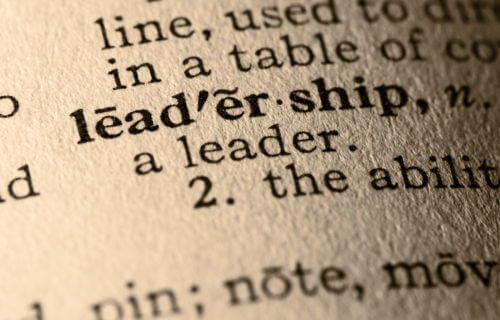LONDON — It really does start at the top when it comes to a happy, thriving workplace. A toxic office culture is not only unhealthy for companies, but more importantly, it’s particularly dangerous for the well-being of employees. So how can managers and business leaders ensure a healthy atmosphere at work? Above all, they must be happy and confident with the person they see staring back at them in the mirror.
Extensive new research by human resource expert Professor Simon L. Dolan, Ph.D, reveals that leaders are most effective when their own self-esteem is high and mighty.
“Leadership can make or break an organization,” Dolan explains in a media release, “with good leaders motivating teams to be creative and productive. But on the other side of the coin, a bad leader can demotivate teams, cause low morale and the effect on teams can be devastating.”
He argues that when leaders have low self-esteem, they’re more likely to spread stress around their teams.

It’s one thing to have a bad boss at some point in your career, but it’s another to have a truly toxic leader, according to Dolan. After decades of experience and research, he created a guide called “De-Stress at Work,” which helps people understand whether their leader affects their workplace mental health, and what they can do about it.
Dolan writes that the main characteristics for identifying a toxic leader include: jealousy of their team’s success, constant concern about workplace “enemies,” taking credit for other people’s work, constant comparison to others, and measuring their self-worth by their success.
“Whether knowingly or not, a toxic leader is one who abuses their authority and violates trust to satisfy their own ego,” Professor Dolan explains.
The most successful leaders can handle pressure and emotions
One contributor to the problem is that because leadership requires so much work, it can have a “superhero” stereotype attached to it. “This can be really harmful, because they are required to hide their feelings even when under immense pressure. Pretending to be a superhuman causes a lot of damage to the mind and body—really the key is to be realistic about your strengths and weaknesses. A leader needs to be able to proactively manage their emotions well enough to project calm and rational to their teams,” he says.
In Dolan’s guide, he provides practical solutions to work-related stress for everyone, including communication tools for companies and individual relaxation techniques for employees. He also stresses the importance of understanding the root of susceptibility some may have to the effects of stress. Usually, it’s a combination of early life experiences and learned behaviors that make people vulnerable to stressors.
“There are many factors that contribute to a toxic personality, including a compulsive need to display their worth to others, but mainly out of a lack of deep-rooted self-esteem. This is usually a culmination of a lack of ethical and emotional development throughout their lives,” he explains.
Regardless of this, it’s possible to change people’s internal perception to make them feel more at ease and within control, resulting in less stress. “Someone who feels they are in control of their lives, environments and actions [is] less stressed,” Professor Dolan concludes. “This is really the core of emotional intelligence.”
